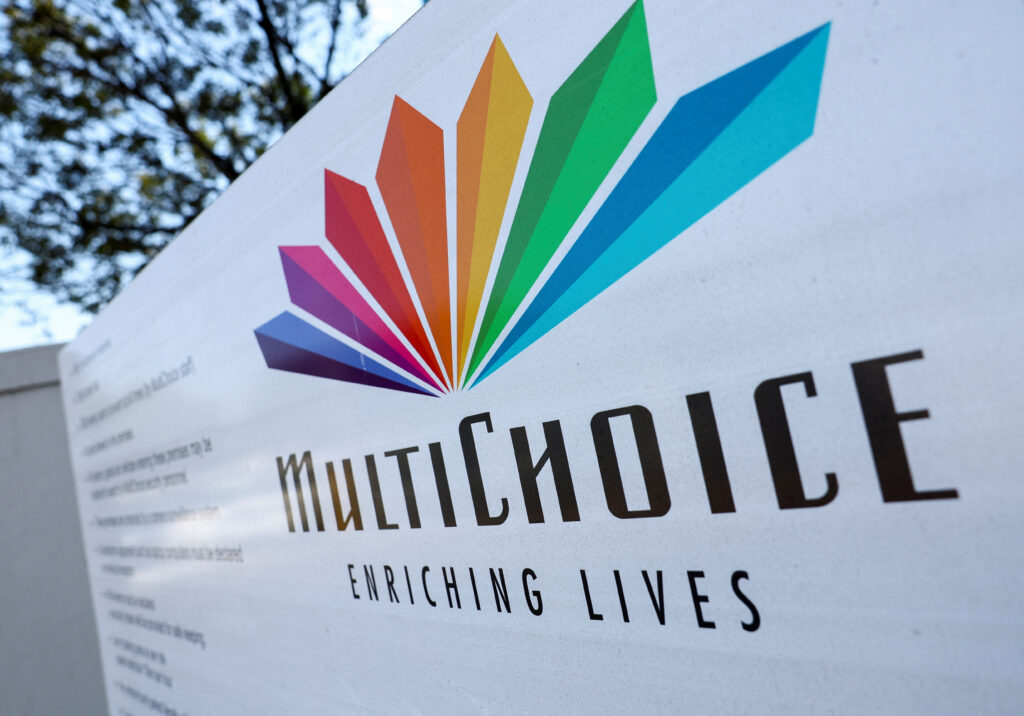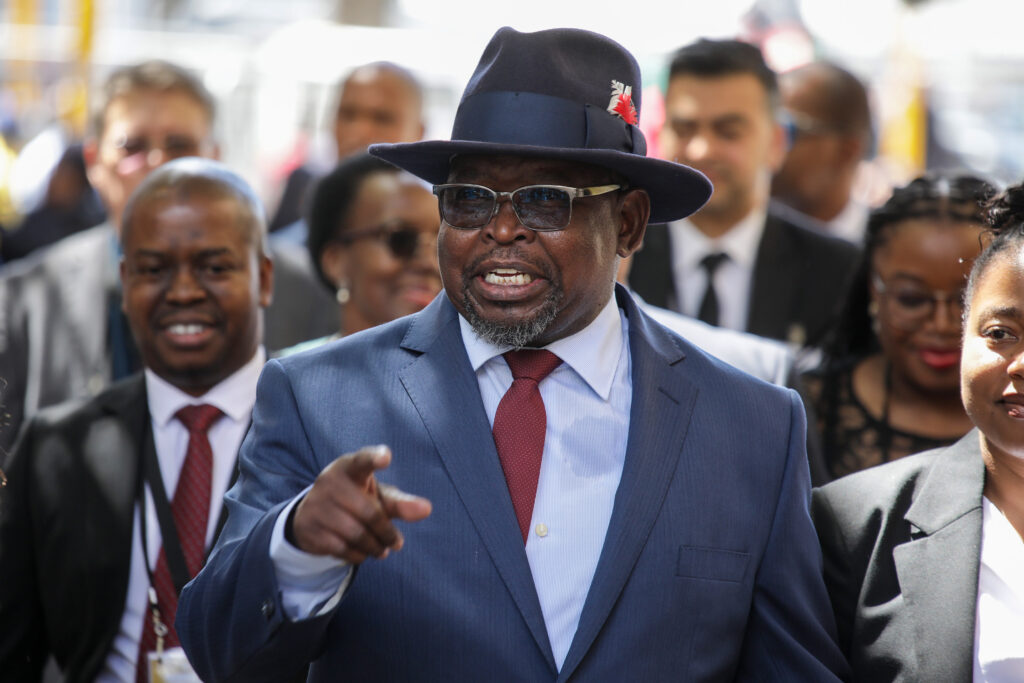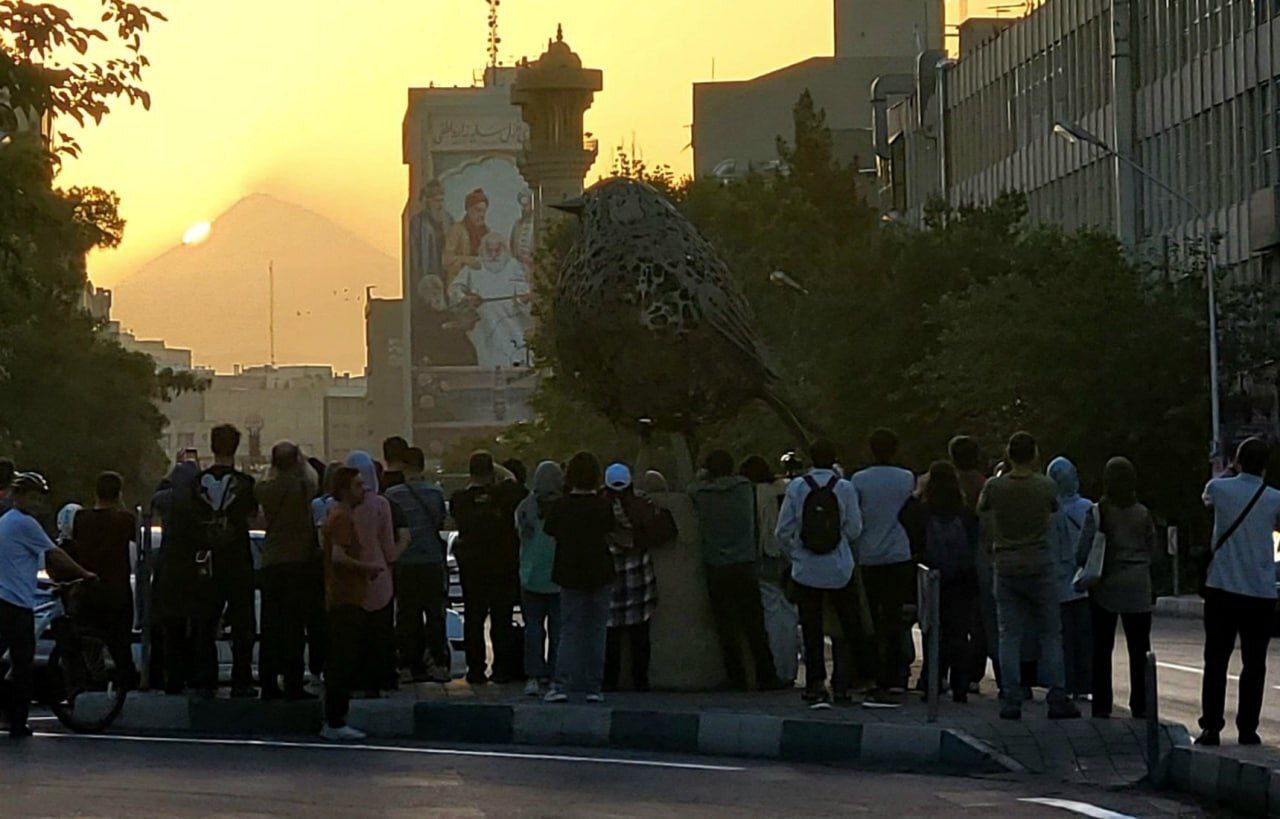South Africa’s automotive industry believes it is still possible for the Africa Growth and Opportunity Act (Agoa), which provides duty-free access to the US market, to continue.
Mikel Mabasa, CEO of automotive business council Naamsa, said on Thursday that as much as analysts are confirming that Agoa “is already gone”, the automotive industry believes very strongly that it still has an opportunity to persuade the US administration not to end the agreement in September 2025, “and we are able to see a much more different outcome”.
ADVERTISEMENT
CONTINUE READING BELOW
Read: Tariffs have essentially nullified Agoa – Tau
Mabasa admitted during a briefing at the launch of the 2025 Automotive Trade Manual that US trade relations “are obviously a moving target”.
He referred to The Presidency announcing this week that President Cyril Ramaphosa will be going to the US sometime early next week to engage with US President Donald Trump’s administration.
Mabasa said Naamsa has already engaged with Mcebisi Jonas, the president’s special envoy to the US, who has requested some speaking notes from the industry in relation to some of the challenges the automotive industry is seeing as a result of current trade and tariff issues.
He said Naamsa will share information with Ramaphosa’s office that will highlight the importance of the US market to the South African automotive industry.
“We definitely want to continue to export our vehicles into the US,” he said.
“It’s a very, very attractive market and we certainly want to be able to ensure that we are able to continue to do that work.”
Mabasa added that Naamsa is working closely with its partners and colleagues in government to be able to continue to push for the continuation of the Agoa agreement.
Export volumes and tariffs
Total automotive exports from South Africa to the US were worth R28.67 billion in 2024, according to the 2025 Automotive Trade Manual.
This made it South Africa’s third most important automotive export country in 2024, behind Germany and Belgium.
Trump in March 2025 announced a 25% tariff on all vehicle imports and foreign automotive component imports to the US.
Read/listen:
US no longer SA’s biggest trading partner
How will the 25% US import tariff affect SA’s auto industry?
South Africa seeks US talks as carmakers face 25% tariff hit
These tariffs will override any duty-free access South African automotive exports enjoy in terms of Agoa.
The tariff on vehicles was effective from 3 April 2025, while the effective date of the tariff on vehicle components and parts was scheduled to be published by the beginning of this month.
Tariff issue ‘fluid and volatile’
Naamsa chief trade and research officer Norman Lamprecht said the US tariff issue creates a lot of concerns and uncertainty, with the situation very fluid and volatile.
Lamprecht referred to Monday’s agreement between the US and China to reverse tariffs for 90 days to de-escalate a trade war.
Read:
US and China agree to major reductions in tariffs for 90 days
Chinese exporters elated by reprieve in US-China trade war
He believes the South African automotive industry should still push for the continuation of Agoa, but that domestic original equipment manufacturers (OEMs) have adapted to the situation and have contingency plans.
Lamprecht said the previous US administration planned to extend Agoa by 16 years until 2041.
The manual highlighted that as an export-oriented industry, South Africa’s automotive industry has since 2024 been facing a severe crisis as the unpredictability of rising tariffs and a looming trade war is causing a state of chronic uncertainty.
“Unlike past crises, the long term implications of these tariffs are unclear, complicating production planning and investment decisions that typically stretch years ahead.
ADVERTISEMENT:
CONTINUE READING BELOW
“Trade agreements remain essential for South Africa as they create a framework that facilitates smoother, more cost-effective, and competitive trade between countries,” it said.
The manual adds that just-in-time supply chains are particularly vulnerable, and with limited capacity to shift production or secure alternative suppliers, OEMs and their suppliers are bracing for cost increases, potential shutdowns, and rising vehicle prices.
It stressed that South Africa’s automotive industry is a pivotal component of the economy, with exports imperative to obtain higher production volumes and economy-of-scale benefits.
Read: SA auto industry achieves R21bn positive trade balance
Naamsa chief economist Paulina Mamogobo said South Africa’s automotive industry in 2024 contributed 5.2% to the country’s GDP, and the value of automotive exports accounted for 14.6% of total South African exports.
Chinese vehicle scourge
Chinese vehicle brands in the South African market were also highlighted during Naamsa’s briefing.
Moneyweb reported earlier this month that Chinese brands are disrupting South Africa’s vehicle retail market, principally through pricing pressure.
Mamogobo said India was the top country of origin in volume terms for passenger cars and light commercial vehicles (LCVs) imported into South Africa in 2024, with 173 742 vehicles accounting for 57.1% of the total light vehicles imported. China cemented its second position by accounting for 17.1% of car and LCV imports.
She said several global brands have established India as a production hub for small car plants, and most of the vehicles imported from India fall in the small car and entry-level segments.
Listen:
China rattles global auto sector …
No spark for European car companies
Mamogobo said the rising demand for affordable vehicles has created new opportunities for brands to enter the domestic market while offering consumers a wider variety of choices.
“South Africa welcomed no less than six different Chinese brands in 2024, on top of the three brands that launched in 2023.
“Altogether, there were 14 different brands from China operating in the domestic new vehicle market in 2024, and we are likely to see more to follow in 2025,” she said.
Mabasa said the impact of Chinese brands in South Africa is not unique to South Africa; Chinese brands have been penetrating many markets around the world.
Read: SA auto industry faces threat from shift towards imported vehicles
He said Naamsa is working closely with the Chinese brands in the South African market, some of which have indicated to Naamsa they have an ambition to set up completely knocked down (CKD) manufacturing operations in the country.
“Three specific OEMs have indicated to us that they would like to investigate that opportunity further and we are working with them to support them the best way we can to allow them to develop their business case,” he said.
Mabasa added that Naamsa still wants to meet its ambitions to increase annual vehicle production to 1.4 million units by 2035. The opportunity to do so is not only focused on increasing the production capability of OEMs already in the country but also on mobilising and attracting new investments into South Africa.
Follow Moneyweb’s in-depth finance and business news on WhatsApp here.

 5 days ago
1
5 days ago
1






















 English (US) ·
English (US) ·